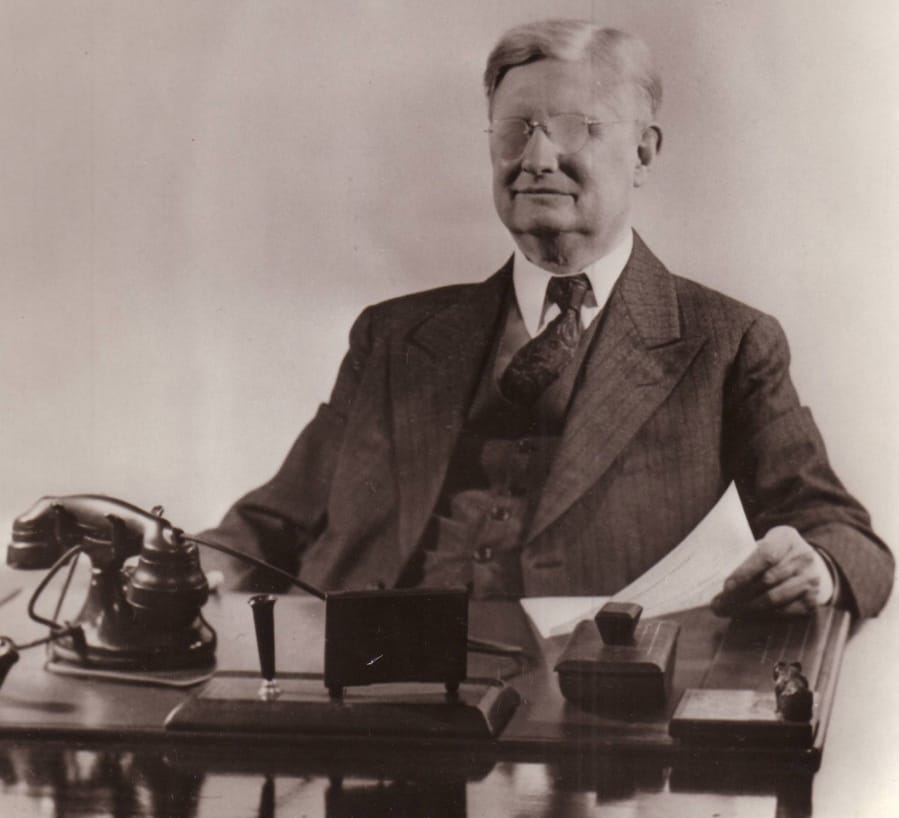After an eye infection blinded their 5-year-old son, his parents enrolled him at the Washington School for Defective Youth in Vancouver. In 1901, that boy, Robert B. Irwin, graduated. He earned a bachelor’s degree from the University of Washington, gained a master’s from Harvard, and continued at Harvard to work on government and blind people’s issues.
In 1910, the Cleveland Public Schools hired him to supervise classes for blind students. Irwin adapted Binet Intelligence tests to evaluate blind students, his first of many efforts to improve their lives. The American Foundation for the Blind hired him in 1923 as director of research and education, a position he held until 1949. His work helped build the AFB into an influential organization for the blind here and overseas.
Irwin tirelessly worked to improve the lives of blind people. He was a prolific writer. His book “War of the Dots” helped standardize Braille; before then, several competing dot alphabets made it difficult for blind readers to buy books with consistent dot patterns.
In 1931, President Hoover signed the Pratt-Smoot Act. Irwin was the driving force behind the bill’s passage. The law sanctioned federal funding to expand library services for blind people, opened new worlds for them with “talking books” and provided standardized Braille books.



